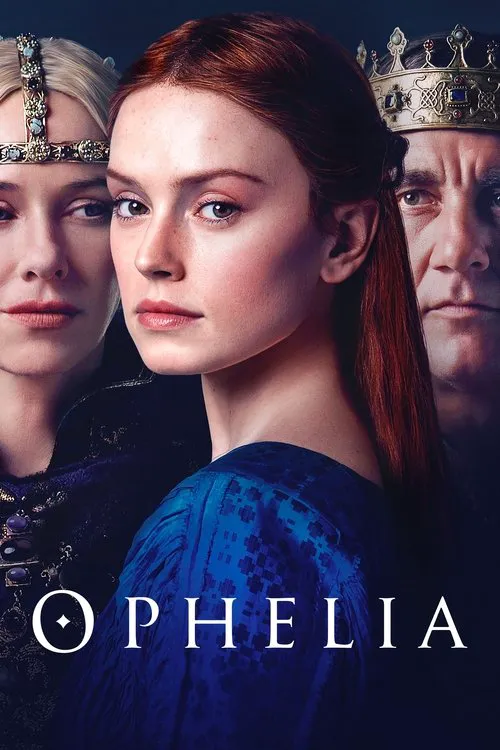Ophelia

Plot
In a lush and vibrant rendition of William Shakespeare's iconic Hamlet, Ophelia reimagines the story from the perspective of the titular character, weaving a complex tapestry of love, madness, and tragedy. Set in a fantastical, mythic world, the film transports viewers to a realm both familiar and foreign, where the lines between reality and fiction blur. Gertrude, the queen of Denmark, rules with an iron fist alongside her husband, King Claudius, whose marriage to Gertrude has sparked a brewing storm of resentment throughout the kingdom. Amidst this charged atmosphere, Ophelia, a young woman of uncommon wit and spirit, enters the royal court, becoming lady-in-waiting to Gertrude. As she navigates the intricacies of court life, Ophelia catches the eye of the brooding Prince Hamlet, who has returned to Denmark after his father's untimely death. Hamlet's fixation on avenging his father's murder has become all-consuming, driving him to the edge of madness. The connection between Ophelia and Hamlet is palpable, and she finds herself drawn into his world, even as she becomes increasingly entangled in the complexities of royal politics. Gertrude, calculating and manipulative, takes advantage of Ophelia's innocence, using her as a pawn in her own game of power and influence. The queen's treatment of Ophelia is calculating and devoid of empathy, and the film masterfully illustrates the way in which women, in particular, are silenced and marginalized within a patriarchal society. Ophelia's relationships with both Hamlet and Gertrude drive the narrative, but amidst the tangled web of allegiances and betrayals, the young woman is left to forge her own path. Her struggle for autonomy and self-discovery is a pivotal theme, as she grapples with the weight of her own emotions and the expectations placed upon her. In the midst of this turmoil, Ophelia's singular spirit begins to assert itself, and she finds solace in her own company, turning to the natural world and the poetry of the times to express her feelings. Her connection to the land, the cycles of nature, and the beauty of the world around her serves as a counterpoint to the toxic environment of the royal court. As the story unfolds, the boundaries between Ophelia's reality and her mental state begin to blur, foreshadowing the tragic events that will ultimately unfold. Her descent into madness is a heart-wrenching portrayal of the consequences of trauma, manipulation, and the silencing of women's voices. While Ophelia remains at the center of this film, her journey is inextricably linked to those around her. The complexities of the royal court, the machinations of Gertrude, and the anguish of Hamlet all serve to illuminate the darkness that has consumed Ophelia. Her ultimate fate serves as a poignant reminder of the devastating consequences of a society that fails to protect its most vulnerable members. Throughout the film, Daisy Ridley brings Ophelia to life, imbuing her with a depth and nuance that resonates long after the credits roll. The film's stunning visuals, coupled with a haunting score, transport viewers to a world both fantastical and hauntingly familiar. Ultimately, Ophelia is a beautifully crafted tale of love, loss, and self-discovery, one that explores the depths of human emotion and the devastating consequences of a society that fails to protect its most vulnerable members. The film serves as a powerful reminder of the importance of listening to and amplifying women's voices, and the need to reclaim and redefine the narratives that have been imposed upon them.
Reviews
Recommendations




